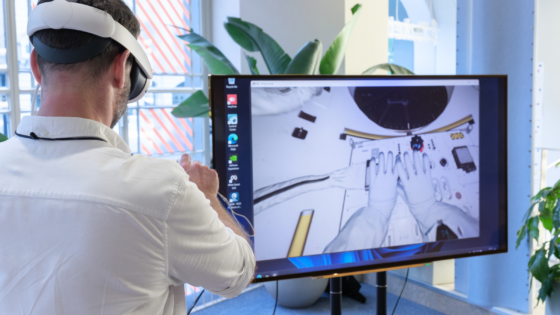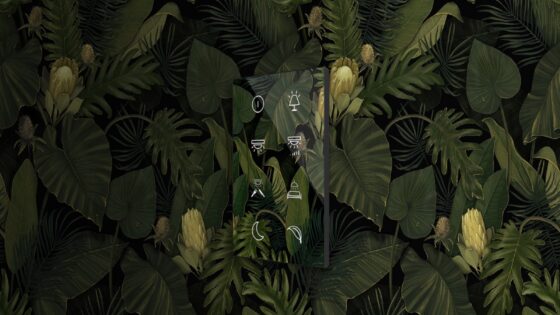“Out with the old and in with the new,” but what do you do in hospitality, when what’s about to come looks exactly the same as what’s just gone? Luckily, we have hear from psychotherapist, expert speaker and author Daniel Fryer to help hospitality through…

It’s that time of year where we all wish one another ‘Happy New Year’ and we keep on wishing it until we can safely say we’ve wished it to everyone we wanted and needed to wish it to. This usually ends around late February, or early March at the latest.
This year, however, many people are expressing their new year greetings tinged with concern and trepidation as the pandemic tosses up the cards! Some people even wince when they say it. And with good reason. Covid-19 has not gone away. In fact it’s mutated. In many places it’s spiralling out of control again. Vaccines are here but are being rolled out too slowly. Local restrictions are being updated weekly and, in some cases, even daily. Advice changes regularly. England has just gone into another full lockdown. All this uncertainty is hard to swallow and makes life difficult to deal with. That goes double for the hospitality industry and 2021, just like it its predecessor, is keeping both individuals, businesses and brands on the back foot.
This is not nice and it’s not good for anyone’s bottom line. It can even adversely affect your mental health. But only if you let it. Life is how it is; and things are how they are.
You can blow those things out of proportion and make them worse than they are or keep a sense of perspective and see them exactly as they are. You can take 2021 on the chin, or you can crumble and fall apart in the face of it.
After all, we’ve had worse years, right? I mean, historically speaking. And we survived those.
As with most things in life, history teaches us a lot. Ancient wisdom tells us a lot about how to live today. Mindfulness and mindfulness-based therapies, for instance, turned to Buddhism for content. Whilst cognitive behaviour therapy (CBT) and rational emotive behaviour therapy (REBT) turned to Stoic philosophy.
REBT says that it’s not the events in life that disturb you, but what you tell yourselves about those events that disturbs you and it based that nugget of wisdom on the teachings of a specific Greek Stoic philosopher called Epictetus.
Stoic philosophy was born out of a challenging period in history, where pillaging and plundering were rife. It was perfectly normal to go to sleep easy, only to wake with your house on fire, and your family sold into slavery.
And so the Stoics asked a very important question: “What can we tell ourselves that will keep us reasonably sane as we deal with these daily challenges?”
As a famous saying goes, “pain is inevitable, but suffering is not.” Trying to function normally during a pandemic is a pain. Wearing a facemask is a pain. Lockdowns are a pain. Trying to keep your business afloat is a massive pain. But it does not mean you have to suffer these pains. It does not mean you have to fall victim to what Shakespeare called the slings and arrows of outrageous fortune.
The Stoics believed that all human beings suffered because they were always trying to control the uncontrollable. And yet, very little in our lives is under our control. Realising this is a good thing. No, really, it is.
What if you just gave up your notions of control? I don’t mean completely. I don’t mean everything. That would be chaos! But, we can contain some of our concerns and let others go completely. We could create two circles within our minds (or on paper), one within the other. We can call the outer circle a circle of concern. And, in it we can place all the things that worry us, but that we have no influence over whatsoever. And then we can resolve to worry about them no more. This will free up some very valuable mind space. Space for us to focus on the inner circle, which we can call the circle of influence. In this we can place all the things that worry us, but which we can exert an influence over. Things we can control to some degree or other. And then we can resolve to focus our attentions there.
I didn’t make these circles up by the way. This exercise is a valuable psychotherapy and coaching tool. It features in The 7 Habits of Highly Effective People by Steven R Covey.
Just think of it. Everything inside those circles is important to you but, you free up some very valuable mental real estate but focusing only on those things you have control over. All of your reasonable worries, all your plans, and all your resolutions can be targeted solely on the circle of influence, rather than the wider, unwieldy and unmanageable circle of concern.
How helpful would that be?
This brings to mind (or to my mind at least) The Serenity Prayer, which was written by the American theologian Reinhold Niebuhr in 1932. It typically goes like this: “God, grant me the serenity to accept the things I cannot change, the courage to change the things I can and the wisdom to know the difference.”
Wise words indeed
The prayer spread rapidly and was even adopted by Alcoholics Anonymous (AA) and other 12-step programmes. You can use words and concepts such as life, the universe, or the inner self if there are no gods that you worship.
It’s a great mantra for modern living; it echoes what those Stoics were on about all those years ago and, more importantly, as we move further into 2021, it’s an excellent maxim not only for peace of mind but also for strategic planning.
And so, for this new year, on a personal and professional level, instead of wishing you every health and happiness, I wish to mitigate your suffering. I wish you the serenity to accept those life conditions that you cannot currently or ever change, I wish you the strength and courage to focus your energies on only those things you can change and, above all else, I wish you the wisdom to know the difference.
Main image credit: Unsplash/Katarzyna Urbanek/Daniel Fryer




